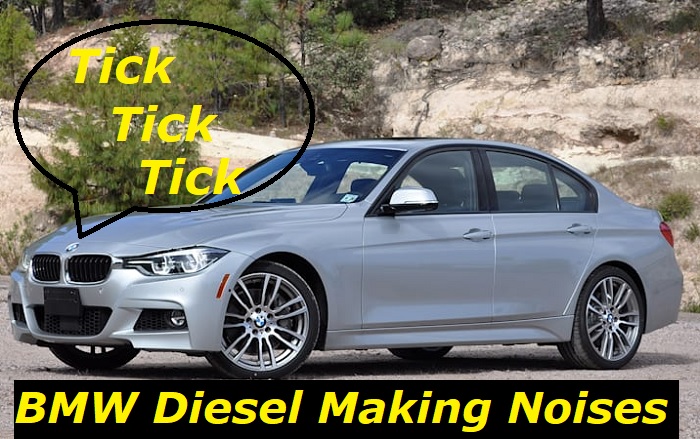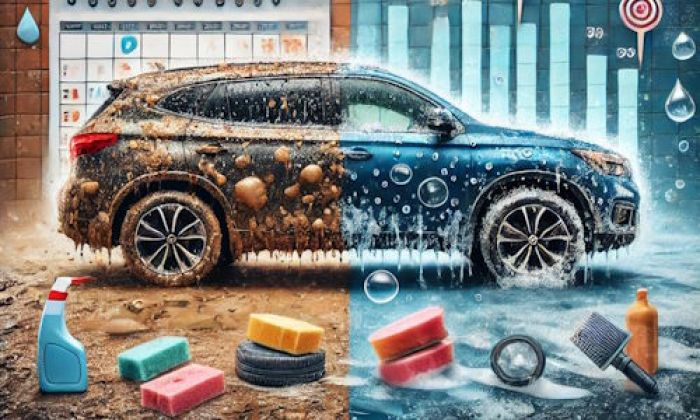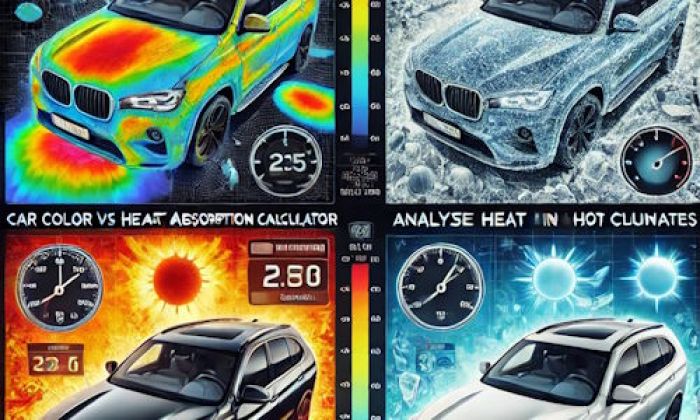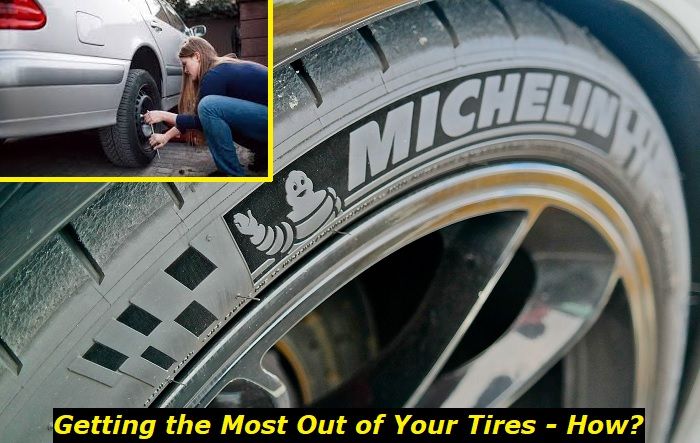Engine noises - they are not only scary but also annoying. These noises are frequent with diesel engines. One major drawback of a diesel car is the engine noises.
Some of them are normal and harmless but very uncomfortable. The noises are part of a fully functioning diesel engine. Don't be surprised to know that your refined BMW diesel engine will be noisier than a gasoline engine.
However, there are cases when the diesel engine noises turn into a strange squeal, loud clanks, and other weird noises. In most instances, the odd noises signify a deeper problem. If you don't pay attention, it may lead to total engine replacement. Therefore, it's essential to understand these noises and what can go wrong.

Let's crack the nub and find solutions to these noises.
Why Is a BMW Diesel Engine Noisy?
No engine, be it gasoline or a refined diesel, is silent. You may hear mild roars, humming, or clicks when varying the revs. Your BMW engines will make harmless notes when starting, accelerating, or decelerating. Don't overlook the noise if it shifts to a noisy level or is out of the norm.
Diesel engines are particularly noisy due to the diesel (fuel) combustion.
A diesel engine relies on the combustion of the diesel to operate. The ignition occurs once the piston compresses the fuel and air mixture in the engine. The compression squeezes the combination to a level where it automatically ignites. These squeezes cause a sudden rise in pressure. The sudden rise, in turn, causes an explosion that produces chaotic noise. The noise may worsen if the engine is not warm enough.
Apart from the fuel ignition, the overhead on your BMW engine is relatively bulky. The small components that make up the overhead (valves, injectors, rockers, etc.) also produce noise as the engine runs. The weight of these components, the clearance gap, and the compression don't help either. The noises also come from the cooling fan, turbocharger system, or the gear mechanism of the engine.
But you need to note that the noisy engine could also signify a problem under your car's hood.
Worrisome Diesel BMW Engine Noise
If you hear any of these noises, your engine may need further troubleshooting.
Rattling/Crackling Noises
You might hear a rattling, crackling, or a pinging noise when accelerating or idling.
During Acceleration
If the rattling (series of pinging sounds) noise comes up when accelerating, it could be due to premature ignition. The pre-ignition often occurs when the piston fails to reach its maximum stroke. If ignored, it could cause damage to the piston, connecting rods, or the valves. When the mixture ignites prematurely, it generates pressure waves which may cram the cylinder as it moves. The crammed movement will lead to a rattling sound.
It can also be due to any of the following issues.
- An overheated engine. The engine can overheat due to an inadequate cooling system, low oil levels, or significantly low oil pressure.
- Wrong ignition timing. The air/fuel mixture needs to travel through the engine to its intended ignition destination to function. Therefore any distribution to the timing sequence can cause a pre-ignition that, in turn, produces a pinging noise.
- Contaminated fuel. Your BMW diesel engine needs diesel to function. So if by any chance there was contamination of the oil, it may cause pre-ignition issues.
- Damage to the knock sensorcan also manifest as a rattling or pinging noise. The knock sensor keeps a watch on the ignition process and any irregular vibrations emanating from the engine. The damage may come as a rattling sound, a dipping acceleration, and an overheated engine.
It's relatively easy to fix the rattling noise that occurs while accelerating. Change the cooling system if the pre-ignition resulted from an overheating engine. Check the air/fuel mixture. Clean the engine and replace the oil if it's contaminated. Always remember to use diesel with adequate cetane levels.
Consider getting rid of the carbon deposits. Before thinking of swapping the entire engine, a clean one could be your solution.
During Idle
It's also possible to hear a rattling (tappy/ clattering) sound during idle. If you've checked the interior or underbody of the car and everything seems all right, the problem could be your engine. The most notorious cause of engine-related rattle noise during an idle is grime build-up between the connecting rods and the crankshaft.
If there is an excessive clearance gap between the two, it causes low oil pressure. The low pressure may wane off the lubrication resulting in a noisy idle. A simple connecting rod replacement may solve the issue. However, if there is severe damage, you may have to replace both the crankshaft and the connecting rods.
Ticking Noise
Don't ignore the sharp "tick, tick, tick..." noise coming from under your car's hood, particularly if they're rhythmic and occur during an idle or acceleration.
The ticks may occur because of:
- Dried lubrication - your car's engine has many moving parts that need lubrication. Therefore, check your oil level and lubricants before rushing to replace parts of your engine.
- Low oil pressure - if you have enough oil levels but the lubrication seems dry, it could be you're dealing with low pressure. Low oil pressure comes up if the oil pump doesn't produce enough pressure needed to lubricate your entire engine.
- Loose lifter -this is common with BMWs. It's a mechanical issue arising from a malfunctioninghydraulic valve lifter.The lifter needs to create space for the moving components as it runs. So, if it's broken or wobbly, it may knock the camshaft causing loud ticking noises. The loose lifter produces a ticking sound that may occur both at idle or while driving if it is damaged.
Don't ignore ticking sounds. It may need simple repairs if caught and corrected early on. However, ignoring the ticks may result in extensive repairs or engine replacement.
Knocking noises
It could be one or a series of knocks. The knocks can happen while starting the engine, idling, or revving.
- Check the fuel injector. If it's not working as expected, it may cause misfires. Such misfires produce knocking noises. Therefore, consider cleaning them to correct knocking sounds.
- Dirty oil or oil clogs can cause knocking noises.The dirt may clog tiny moving parts in your engine resulting in knocks. Get a skilled mechanic to execute an engine flush. They may also need to replace the dirty oil. Dirty oil may cause irreversible damage to your engine. You'll notice a smoother and quieter engine once your engine goes through an engine flush or oil replacement.
- What's the state of yourglow plugs?Glow plugs come in handy while starting your engine. It also helps cushion noises emerging from the piston chamber. Any damage or wear and tear to the glow plugs can result in a waning cushion. Therefore, resulting in loud knocks from the piston chamber.
- A malfunctioningEGR valvecould also cause knocking sounds. EGR valves operate in a harsh environment. So, damages or wear and tear are common. You may also observe constant clogging because the gasses (exhaust gasses) pass through them. So, the EGR valve causes a high temperature if it's clogged or remains shut as the engine revs. The high temperatures may lead to increased nitrogen emissions resulting in a clogged valve. The clogging often manifests as knocking noises. Let your mechanic check for faulty codes, electrical connections, rough idles, or carbon build-up.
A squeal
A squeal while starting or running the engine is a cry for help from your car. Your engine needs several belts to operate. One of the most crucial belts is the timing belt. The belt helps synchronize the cam and crankshaft rotation that keeps most components and valves in your engine up and running. Therefore, you may hear a squeal due to
- A damaged water pump pulley.Any failure on the bearings may cause a squeal. If ignored, the failing bearings on the pulley may cause irreversible damage to the water pump resulting in an overheated engine.
- A tight belt, slipping V-belt, or misalignment on the pulley can also cause a squealing sound.
Ask your mechanic to evaluate the entire engine. They will look at all the pulleys or belts to determine their status. If there is any damage, they will repair or replace any broken parts.
A Pop
Pops are alarming. Damaged spark plugs or clogged air and fuel filters may cause a popping sound.
- A strained spark plugcannot generate enough sparks needed to ignite the fuel and air mixture in the engine. The strain often manifests as a popping sound.
- Dirty air filters, defective ignition wiring, or clogged fuel filters may cause a popping sound.When the air or fuel filter cannot prevent particles and dirt, it results in tear and wear to the engine component. The wear may result in weird noises such as sudden pops.
Wrapping Up
Engine noises are frequent, but some can indicate damage to a part of the engine or the entire engine. Don't ignore any noise that seems out of the norm. It's essential to check in with your mechanic to ensure you run a clean and functioning engine.
About the authors
The CarAraC research team is composed of seasoned auto mechanics and automotive industry professionals, including individuals with advanced degrees and certifications in their field. Our team members boast prestigious credentials, reflecting their extensive knowledge and skills. These qualifications include: IMI: Institute of the Motor Industry, ASE-Certified Master Automobile Technicians; Coventry University, Graduate of MA in Automotive Journalism; Politecnico di Torino, Italy, MS Automotive Engineering; Ss. Cyril and Methodius University in Skopje, Mechanical University in Skopje; TOC Automotive College; DHA Suffa University, Department of Mechanical Engineering






Add comment